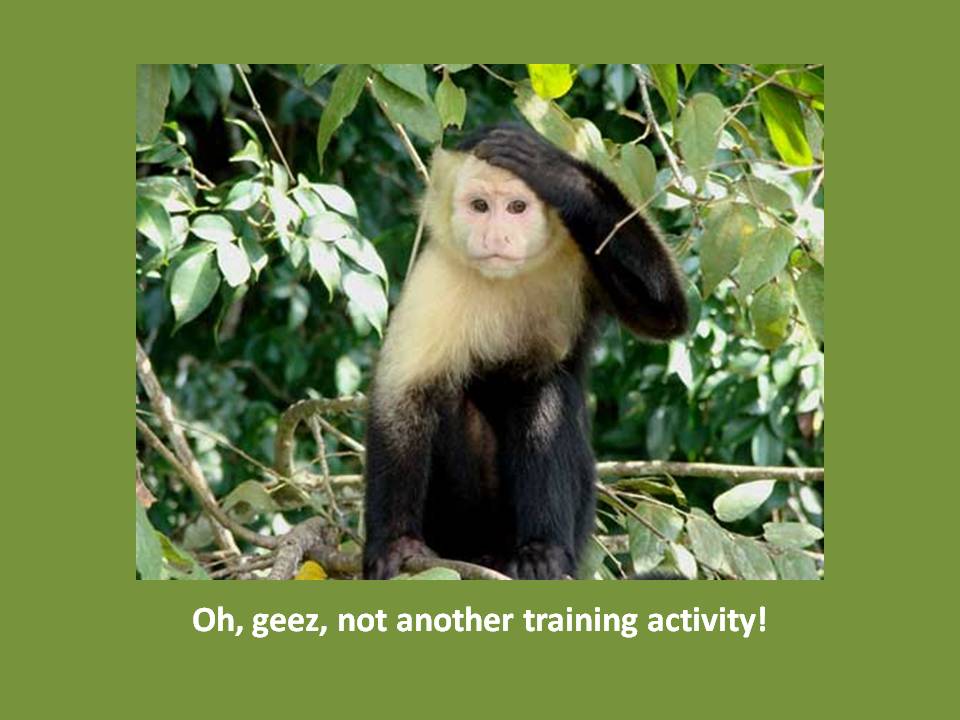What’s your opinion on training activities – love ‘em or hate ‘em?
My colleague Robin Schooling has a love-hate relationship with training activities. I can relate, having attended my share of workshops where I’ve found myself thinking, “Really?! Move about the room and act like MONKEYS?” (Seriously. One time, a group of us were asked to do that.)
And here’s the flip side – as a former corporate trainer, I’ve facilitated my share of experiential learning activities – designed to engage learners and bring about that “aha!” moment. When it works, it’s beautiful, and yes, I do love that.
There are several ways to ruin a potentially useful training activity. If you’re in the “hate ‘em” camp, it’s probably due to one or more of the following reasons, which I call “learning busters”. Like an unexpected dousing with ice water, these conditions are guaranteed to stop learning in its tracks.
Bad experiences in past training sessions. Like, say, being asked to act like a monkey. That’ll put a chill on anybody’s learning, except for wannabe capuchin monkeys looking to score the next big gig on Night at the Museum 3.
The activity doesn’t fit your personality. You are an introvert and the thought of reaching out to people makes you uncomfortable. Or, you’re an extrovert and the mandate to complete the “team building with Legos activity” in silence is driving you crazy.
Your learning style doesn’t match the activity. Some people prefer to do “reflective” activities and need the quiet time to synthesize what’s being taught. If you’re one of those folks, being asked to move about the room and/or connect with several discussion partners might be distracting to you.
The activity is counter to the organization’s culture. Some audiences have a culture of seriousness that’s hard to get past. So, leading a group activity that even hints at frivolousness is doesn’t work out so well. A workshop facilitator has to build trust with her audience members before she can ask them to appear in any way vulnerable. I’ve had success bringing toys that people can “fiddle” with while the workshop proceeds, because it’s optional and it doesn’t require anybody to act in a way they might see as “foolish”.
The activity is poorly designed. To my way of thinking, this is the #1 reason that experiential training activities flop. Did you know that there are Masters Degree programs in Experiential Learning? True fact. One of the best learning facilitators I’ve ever seen has an advanced degree in Experiential Learning and he can get people to do silly things – and do them willingly – because they are well-designed activities that are connected to the key learning objectives.
Bottom line: training activities don’t need to suck. And, they don’t even need to necessarily be “fun” – but they do need to engage the audience in a way that makes sense to them and for purposes that are connected to the session’s learning objectives.
Question – what’s the silliest/strangest thing you’ve been asked to do in a training activity? Did you love it or hate it?

I am speechless.
No wonder you sometimes hate training activities.